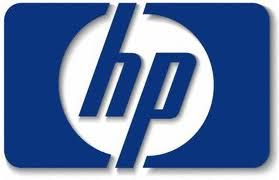HP Urged To Ditch Networking Hardware Business

A Forrester analyst has called on HP to offload its low-margin networking hardware business
Hewlett-Packard’s decision to spin off its PC unit has provoked much debate about what other businesses it could offload, as it seeks to focus its efforts on enterprise software and services.
According to one analyst, selling its networking hardware business would make sense. The margins on HP’s commodity networking gear are low, and the company will continue to trail market leader Cisco Systems, Forrester Research analyst Andre Kindness wrote in a 7 September blog post.
With its strong software tools and the work HP Labs has done with the OpenFlow switching community, HP has the opportunity to create an innovative and differentiated virtualised networking solution that could make it a legitimate option to Cisco’s traditional business, Kindness wrote.
Network Competition
“With HP’s partnershi ps, converged infrastructure, virtualised networking solutions, HP Labs’ OpenFlow innovation, and top-notch software orchestration tools, [infrastructure and operations] professionals could create virtual network infrastructure that VMware could only dream to create, while aligning to HP’s software, services, and cloud strategy,” he said.
ps, converged infrastructure, virtualised networking solutions, HP Labs’ OpenFlow innovation, and top-notch software orchestration tools, [infrastructure and operations] professionals could create virtual network infrastructure that VMware could only dream to create, while aligning to HP’s software, services, and cloud strategy,” he said.
Over the past couple of years, HP and other vendors – including Juniper Networks, Huawei and Avaya – have chipped away at Cisco’s dominant lead in the networking market. For example, market research firm Canalys said earlier this year that Cisco still held 68.2 percent of the switch market in the first quarter, followed by HP with 14.1 percent. However, Cisco in the same period last year had a market share of 73.1 percent.
HP bulked up its networking capabilities when it bought 3Com in 2010 for $2.7 billion, putting it into more direct competition with former longtime partner Cisco. HP officials have argued that their stronger networking portfolio has given businesses a legitimate alternative to Cisco.
However, Kindness said that the 3Com buy has done little to move HP forward in the networking space. Pointing to numbers from The Dell’Oro Group, he noted that at the beginning of 2008, HP had about 9.5 percent of the networking market while 3Com owned 10 percent. In 2011, HP has about 20 percent.
“HP could, at any time, cut the networking division – like they did with their WebOS and mobile division – based on their razor-thin results,” Kindness wrote.
Virtualised Offering
Instead, HP could take the $5 billion (£3.1bn) it would get from selling its networking unit and use the money to create a strong virtual network infrastructure (VNI) offering, “which is Forrester’s vision for a Layer 2-7 network stack composed of virtual, abstracted software, not hardware,” he said. Dumping the commodity hardware angle would enable HP to create a differentiated and virtualised alternative to current offerings from the likes of Cisco, Avaya, Juniper, Brocade and Arista, he said.
However, in an interview with eWEEK this summer, Mike Banic, vice president of global marketing with HP Networking, touted the company’s market-share growth and its innovation around such solutions as its FlexNetwork converged networking offering as examples of HP’s success in the market. HP and others are giving businesses new options when it comes to networking.
“HP’s made networking interesting again,” said Banic, a veteran of the networking space who came to HP after five years with Juniper. “The market had been pretty stagnant in innovation and competition for about a decade now.”
HP intends to push its growing momentum in the networking space, he said, driven by what company officials see as a demand from businesses for more alternatives to Cisco. In the company’s fiscal third quarter, networking revenue jumped 15 percent.
Cisco Fightback
However, Cisco officials, having seen switch revenues slow and its dominant market share decline, have come back hard in recent months with new products, and the effort is beginning to pay off, according to some analysts.
In a report 8 September, Sandeep Shyamsukha, an analyst with Auriga, said Cisco was in position to grow faster than rivals like HP and Juniper over the next 12 months, thanks in large part to new products and pricing strategies. In addition, the transformation at HP also will help drive business to Cisco, he said.
“Conversations with industry experts suggest that CSCO’s key products in routing/switching like ASR 9000 [routers], Nexus 7000 [switches] and [Catalyst] 6000 [switches] have caught up with the competition,” Shyamsukha wrote. “Our checks also suggest that [Cisco] has become meaningfully more aggressive on pricing in recent months.”
In addition, he argued that as businesses build more cloud computing data centres, they’re more likely to stick with traditional networking products from Cisco rather than offerings from others that are based on such technologies as the OpenFlow switch standard.